In an exclusive interview with The Executive Magazine, Phillip Allen, CEO of Marine & Lawn Hotels & Resorts, reveals how a fortuitous phone call in 2009 sparked his remarkable journey from corporate legal counsel at Yum Brands to becoming a driving force in luxury hospitality. Now at the helm of some of Scotland’s most prestigious golf destination properties, Allen shares candid insights about building the Marine & Lawn brand during the pandemic, the delicate art of preserving authenticity while scaling operations, and the unexpected challenge of becoming a golf industry expert
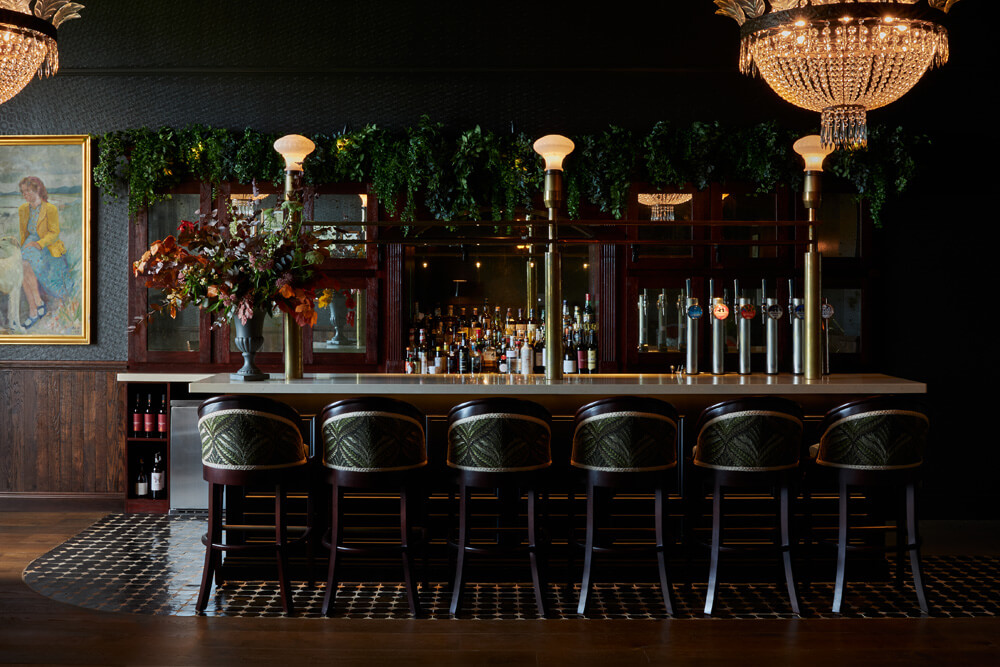
Your career has seen a dynamic evolution from legal counsel to leading luxury hospitality brands. Can you share key experiences that shaped your journey from law to entrepreneurship in the hospitality industry?
“That journey has been the result of dumb luck and good timing more than a specific strategy or key experiences on my part. Although there were two important phone calls that stand out to me as particularly impactful. The first was in 2009 from Craig Greenberg, a longtime friend who is now the Mayor of our hometown, Louisville, Kentucky. At the time, I was in-house counsel at Yum Brands, a great company where I was very happy, and he was serving as the primary legal and business advisor to the founders of 21c Museum Hotels, Steve Wilson and Laura Lee Brown. In addition to expanding 21c, they were involved in several other ventures; Craig said that he had too much on his plate and asked if I would like to join 21c as General Counsel. I was initially reluctant, but over a few months I was persuaded that this would be a great opportunity, and in 2010, I left the biggest restaurant company in the world to go work for a hotel company with a single property. Over the next eight years, 21c expanded to ten hotels, and my role evolved from primarily a legal one to being the head of investments and development, with responsibility for finding, underwriting and financing new projects.
“The second important phone call that I would highlight would be one that I made to AJ Capital founder and CEO, Ben Weprin, in 2018. We were close to completing the sale of the 21c brand to Accor Hotels, and I was looking to make a move; I didn’t know Ben personally, but I really liked the Graduate Hotel brand, and I was impressed with what he had built at AJ. Like 21c, Graduate properties and AJ’s other projects were design-led and locally focused, with an amazing commitment to storytelling through design. Ben invited me to visit him in Chicago, and after a half day of meetings at AJ I knew I wanted to work there. When I got home, I sent him an email with four things that I thought I could do for his company, and the fourth was help him expand the Graduate platform outside of the United States. The rest, as they say, is history.”
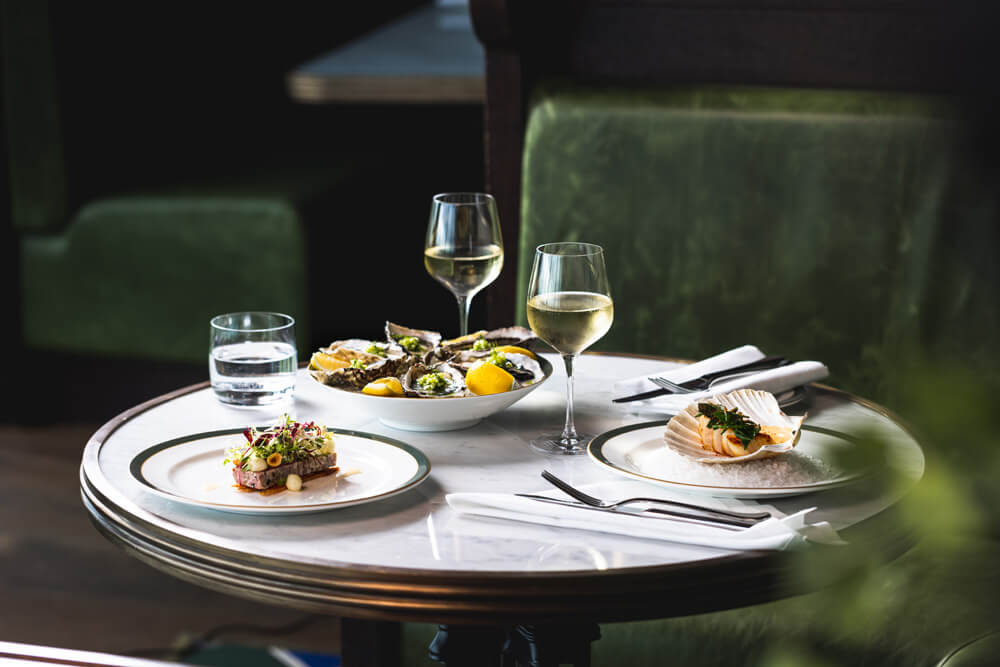
As the President of Marine & Lawn Hotels & Resorts, you oversee some of the most unique properties in the hospitality sector. How do you approach balancing the brand’s commitment to authenticity with the demands of scaling and expansion?
“I actually don’t find those things to be in tension for us. Marine & Lawn’s ethos is rooted in the history, myths, and traditions of the communities we choose to develop hotels in, and we are 100% committed to authenticity and excellence in everything we do. We maintain our brand’s identity by preserving our values throughout every aspect of our business – from our locally inspired design, to our external messaging and the way we train our staff, to the local brands we engage with across all of our properties. We want our guests to feel like they are somewhere – not anywhere – when they stay at our hotels, and we want to be fully ingrained into the local community and embraced by it. Delivering on those commitments creates the opportunity for expansion because all of the various stakeholders that need to be aligned for a successful hotel acquisition and redevelopment can see that we’re doing things the right way. It helps that our expansion plans are relatively modest.
“While we are absolutely still in growth mode, the nature of the markets that we want to be in and the types of properties that we want to own means that we can’t just stamp out M&L’s all over the world. We are happy to keep growing in a very measured and strategic way for the time being.”

From your experience leading the international expansion of both Graduate Hotels and Marine & Lawn, what are some specific challenges you’ve encountered in identifying and integrating properties in new markets?
“When I arrived in the UK on my first business trip in late 2018, I was the only AJ employee working here, and I had spent maybe 20 days in the UK in my life over
three or four visits. As an outsider looking to bring an American brand into a foreign country, I had to get up to speed quickly on the differences between American and British culture generally, and their hospitality cultures in particular. From the perspective of Graduate, the most important difference is that university alumni have very different relationships to their schools in the two countries. University athletics are much more prominent in the US and are a main driver of the affection and the sense of nostalgia that alumni have for their school. On the other hand, many UK universities are not on isolated campuses, but are built into historic towns and cities that have other demand drivers. The Graduate model works in both countries, but not in exactly the same way.
“With respect to Marine & Lawn, I have had the privilege of leading the launch and expansion of the brand in the UK, in destinations I am passionate about and find truly inspiring. One of my bigger challenges in doing so is that I have somehow stumbled into the golf business, in addition to the hotel business. I love golf and have played for most of my life, but never very much or very seriously, and I am still a bit of a hacker. So, I have had to learn to think and talk like a serious golfer, even while struggling to break 90 on the course.
“Another major challenge is that we literally built Marine & Lawn during the Covid pandemic. Our first acquisition of the Rusacks St Andrews occurred in late 2019 and our second in North Berwick in early 2020. I made a handshake deal to buy our third property in Troon on February 28, 2020, and then cut my trip short to fly home to the US so that I could get away from this coronavirus thing that everyone was talking about (at that time, Americans still held out hope that the large oceans on our east and west coasts would prevent the virus from sneaking in the country). Shortly thereafter, all hell broke loose, and I wasn’t sure if this fledgling concept would even get off the ground. But AJ, our investors, and all of our business partners remained committed to the plan, and we were able to do most our of our renovations during the period when the hotels would have been closed anyway due to Covid. Somewhat unexpectedly, the pandemic actually sparked a golf boom, and when our first hotels opened for business, there was tremendous pent up demand for travel and particularly for high end golf travel from the U.S.”
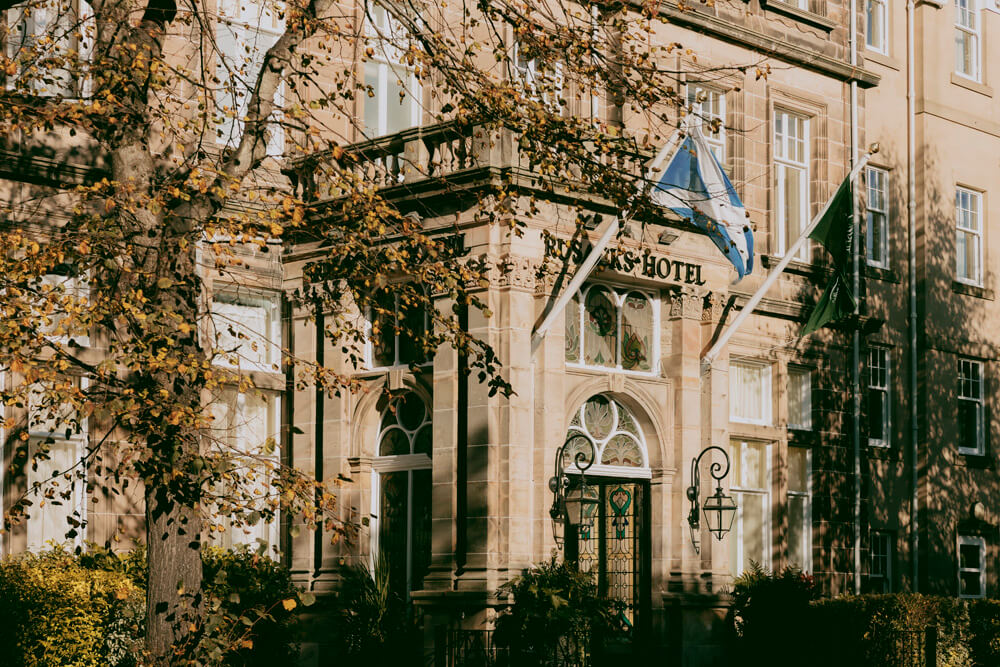
During your time at 21c Museum Hotels, you were pivotal in its acquisition by Accor Hotels. What insights did that experience give you on navigating acquisitions, and what advice would you offer to leaders preparing their companies for a strategic sale?
“First of all, be patient. More deals fall through than get executed, and it’s not the end of the world if the first group you go into exclusivity with has a change of heart. Second, and related to the first point, you have to keep running the business to the best of your ability in its existing form until the deal is done. This can be challenging as the sale of a company can easily become all-consuming, but if the business doesn’t continue to perform at a high level, there may not be another suitor if the first one leaves you at the altar. Third, only do business with people you respect and trust, even if you plan to sell the entire business and have no future role in it. A strategic sale can drag out for years; life is too short to deal with jerks for that long. And finally, start “professionalizing” your business before a potential buyer starts serious due diligence. Get your financial statements in order. Make sure that all ownership interests are properly documented and held within the correct legal entities. Create appropriate HR policies. Do the things that you forgot to do, or couldn’t make time for, as a scrappy startup, but that a more mature business who might want to acquire you will want to see. Hospitality and real estate are sectors with considerable operational and market volatility.”
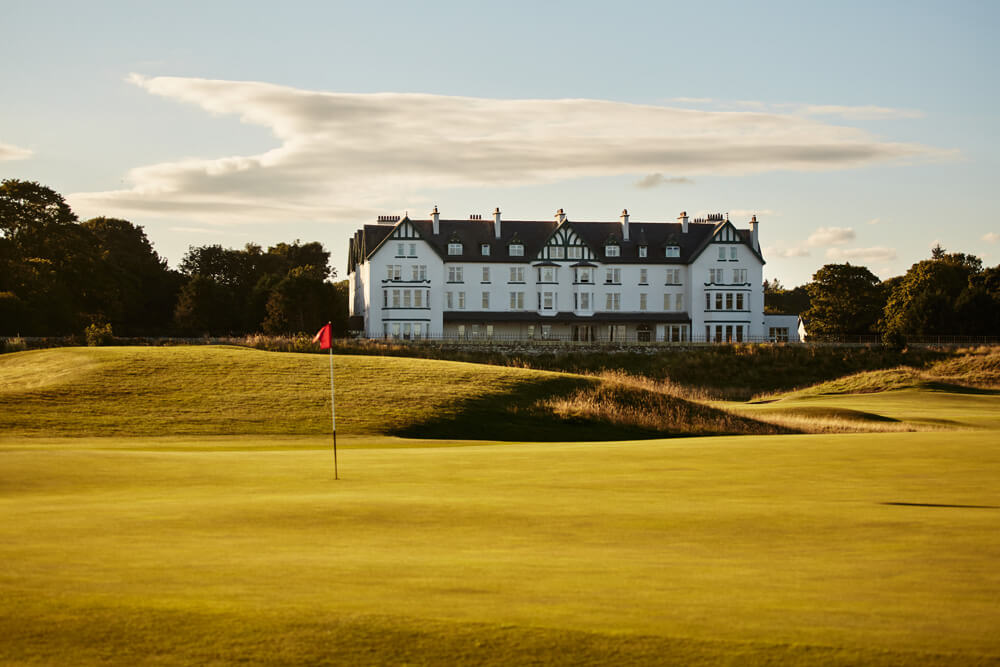
With more businesses now focused on creating immersive, place-based experiences, how do you see the future of destination and boutique hospitality evolving, and what role do you envision Marine & Lawn playing in that landscape?
“We are lucky to have a dedicated team committed to engaging guests with the storied surroundings and unique character of each location. Guests are keener than ever to explore the destination that surrounds hotels – the Global Travel Trends Report from American Express Travel, for example, reveals that a remarkable 89% of travellers express a readiness to explore local hidden gems rather than conventional tourist hotspots, and interestingly this is particularly pronounced amongst Gen Z and Millennial travellers.
“The recent introduction of our distinctive Room 116 at Rusacks St Andrews, which we developed in partnership with The Glendronach Whisky, celebrates both Scotland’s impressive whisky heritage and the legendary Open Champions who have conquered the Old Course, bringing two national Scottish traditions together. Similarly, our new Marine & Lawn Grand Tour experience offers guests a full-service VIP experiential golf concierge and provides a quintessential Scottish and Northern Irish golf adventure inclusive of accommodation, activities, meals and excursions. This was designed to create a once-in-a-lifetime experience for our guests, aligning perfectly with the trend towards experiential travel.”
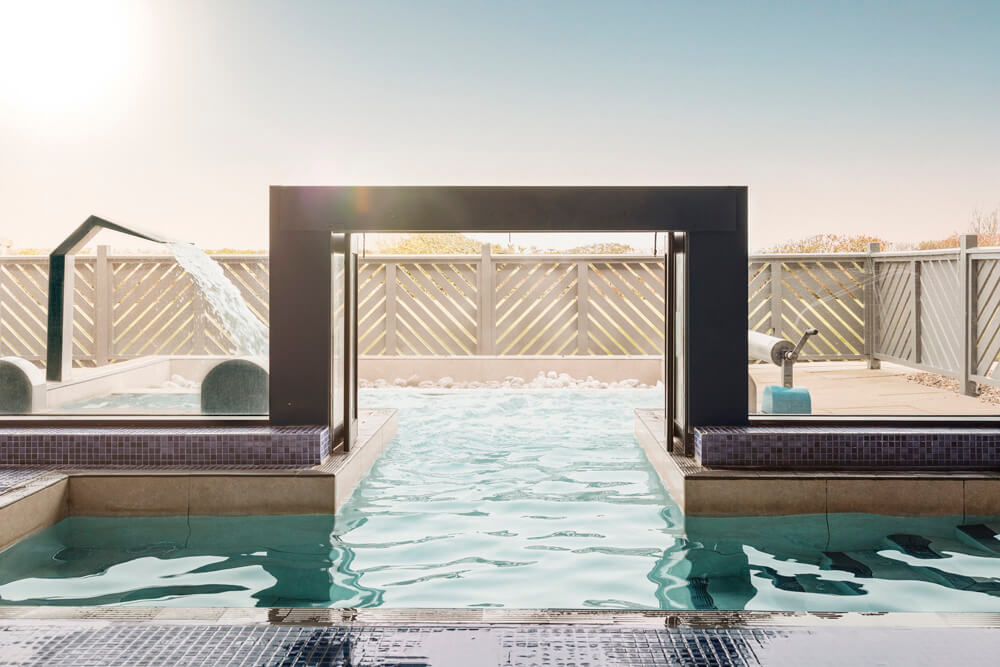
You’ve worked with iconic brands like KFC and Long John Silver’s, alongside boutique hotels and luxury properties. What common leadership principles have you applied across these varied sectors, and how have you tailored your approach for luxury hospitality?
“The one thing that Yum Brands is better at than just about any other company is employee recognition. David Novak, Yum’s legendary CEO, was fanatical about celebrating employee accomplishments, and his attitude trickled down through the entire organization. I’ve tried to remember how much positive energy was created by that employee recognition and bring it to bear in the other companies that I’ve worked for. The desire for individual recognition is nearly universal, and publicly acknowledging the accomplishments of your colleagues is one of the most powerful ways to build cohesion and company loyalty.”
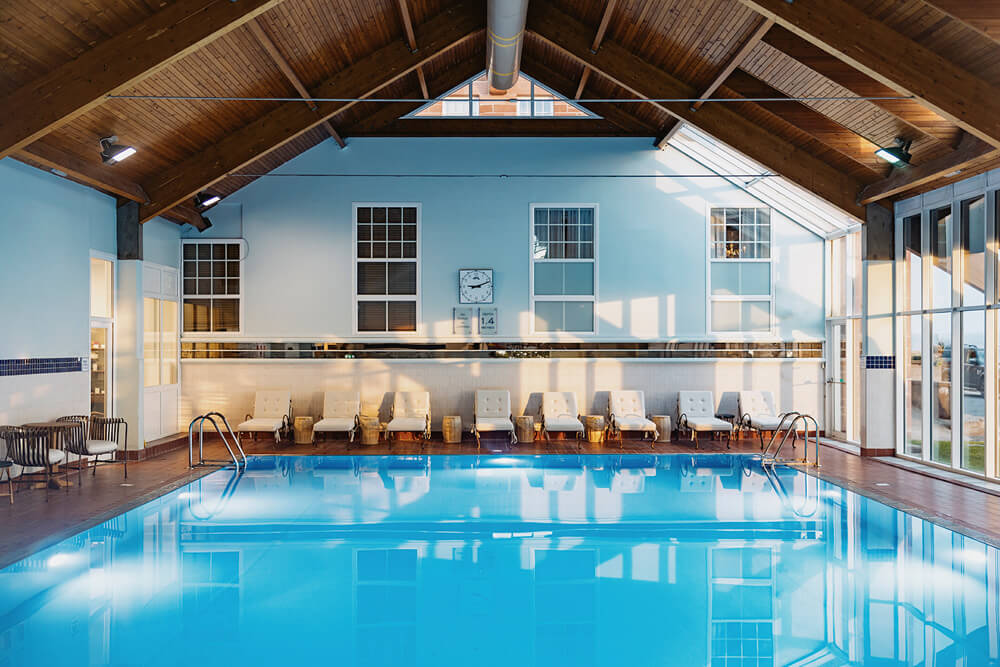
Entrepreneurialism in hospitality often requires a blend of innovation and risk management. What risks have you taken that have defined your career, and how do you assess potential risks when planning future growth?
“One thing that is a bit unusual about my career is that I have taken more risks later in my career than at the beginning. I never thought of myself as an entrepreneur when I was young, and I started my career at a very large New York law firm, in one of the most risk-averse environments you can imagine. The dot com boom and bust of the late 90s was a very formative experience for me, as initially I was a bit jealous of the very young people who were getting rich in speculative technology businesses (some of whom were clients of my firm) and then I was happy that I was not among them when the bubble burst. But my ultimate conclusion after watching the whole cycle play out was that intelligence, integrity and hard work will always win out. If you have those qualities, and if you’re fortunate enough to live in an advanced democracy, you’re not going to starve. So, it’s ok to take a few risks in your career, and I have done so, most notably when I left a very large restaurant brand for a very small hotel company.”
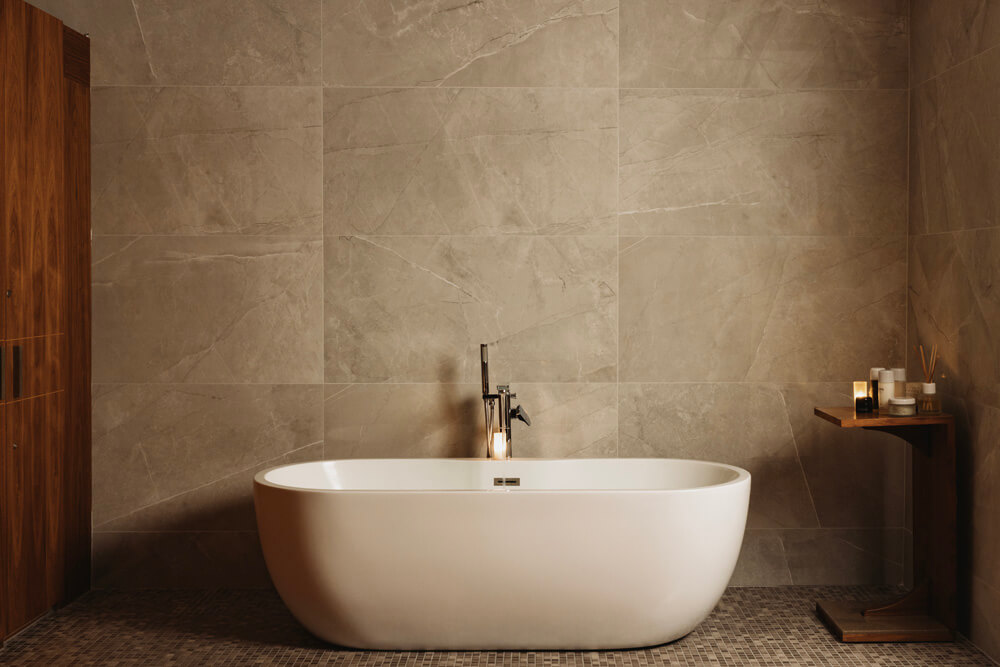
For aspiring leaders in the hospitality industry, what qualities do you believe are essential to achieve sustainable growth, and how can they best prepare for the unique demands of leading in this sector?
“Reaching sustainable growth means being well-prepared. It’s important for industry leaders to gain as much hands-on experience as possible as this is what shapes effective leadership.
“As for qualities, I believe that being adaptable is key. As the hospitality sector continues to be dynamic and ever changing, successful leaders need to be able to adjust quickly and strategically as markets shift, guest preferences change or unexpected events unfold.
“Visionary thinking and strong communication skills also play a big role. Taking our Northern Light experience for example, we revamped our existing Christmas offering to refresh the experience, making it more enticing for guests of all ages – families, couples and friendship groups. We also made sure to communicate the changes to our local community. Most importantly, aspiring leaders need to think with the guest at the centre of everything they do as their experience is paramount.”
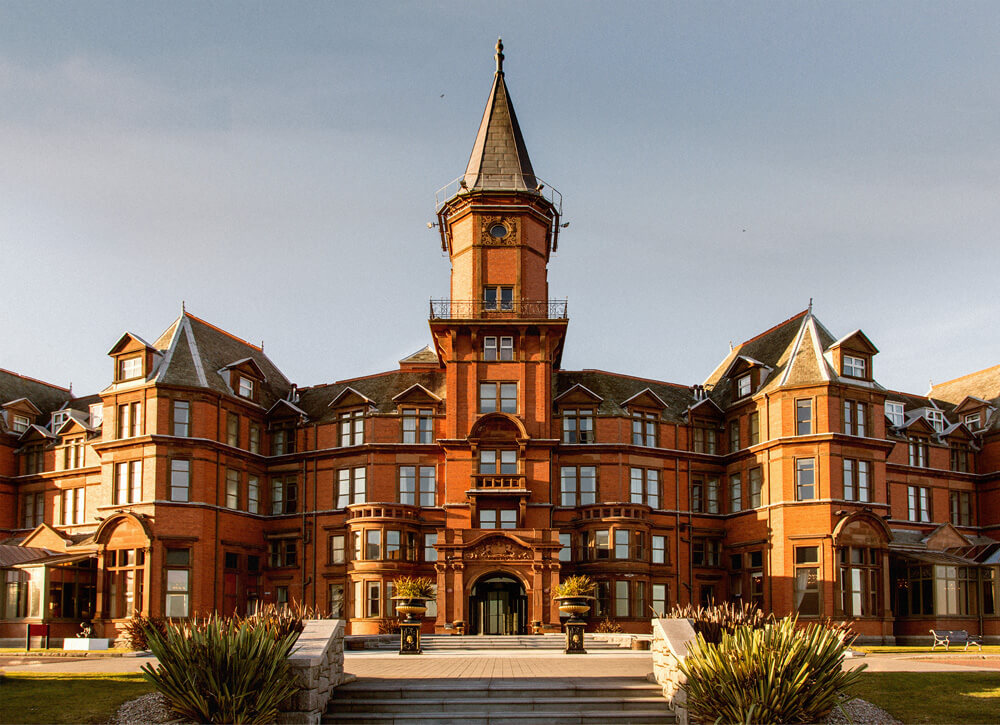
Finally, with your extensive experience in both the U.S. and international markets, how do you view the future of cross-border growth for boutique hotel brands, and what role will technology and consumer expectations play in that development?
“The future looks bright for boutique hotel brands choosing to expand internationally, if they are properly equipped to do so. In particular, the rise of social media – including TikTok itineraries and ‘day in the life’ style videos – means that brands need to have a strong social media presence, including strong imagery and videos to sell their services. This is a strategic way to interact with international guests and local brand fans.
“Similarly, unique guest experiences that pay homage to the destination and smart brand partnerships are a great way to appeal to people from all over the world and build on existing guest relationships. Whilst travellers continue exploring further afield, if the option is there, I believe they would still stay true to the hospitality brands that they know and trust. We have definitely seen this with our expansion into Northern Ireland – it has been heartwarming seeing repeat customers who love Marine & Lawn in Scotland make the journey to Northern Ireland to experience Slieve Donard.”


